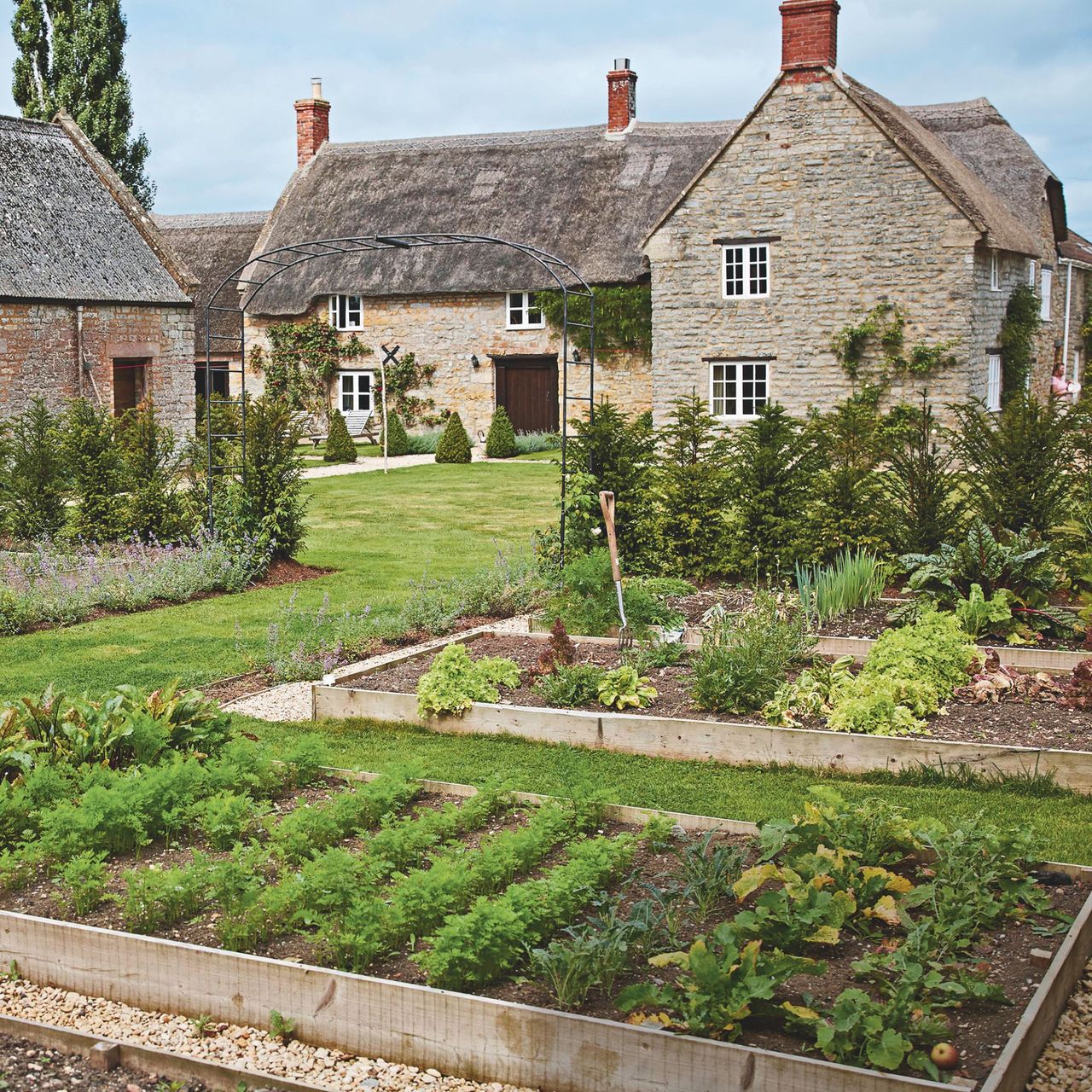
Looking for the very best mulch for vegetable gardens? Well, you're on the right path to strong, tasty harvests, that's for sure.
Mulching is one of the best things you can do for a vegetable garden – it'll enrich the soil with nutrients, protect bare soil, improve its structure and even suppress weeds. It's a win all round!
There are various types of mulch, though – so to narrow things down for your veg patch, we've rounded up the best mulch for vegetable gardens, specifically.
'There are many materials that can be used to mulch with and what you choose can depend on availability, cost, style and nutrients needed,' he adds.
On that note, here's our pick of the best mulch for vegetable gardens in particular...
1. Homemade compost
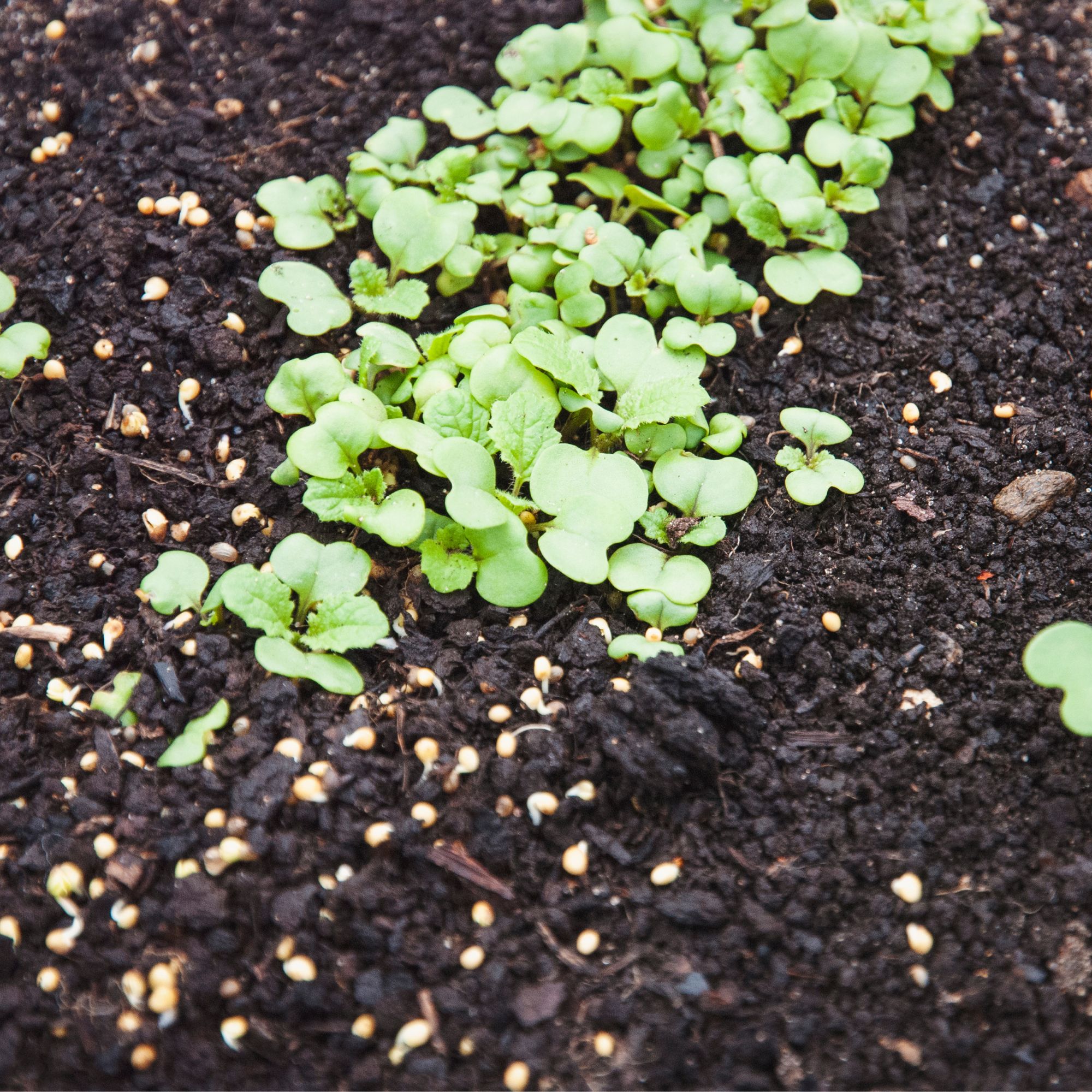
Learning how to hot compost isn't just a trendy new garden fad; it's also one of the easiest and quickest ways to make compost (which, incidentally, is one of the best mulches for a vegetable garden).
'Nothing much beats a good quality homemade compost,' says Morris Hankinson, director of Hopes Grove Nurseries. 'Adding a layer of well-rotted compost will help to get rid of weeds naturally and provide nutrients to the soil.'
Let this bin do the hard work for you with the tumbling design meaning your compost will get churned up hands-free.
This best-selling compost bin has both a hinged lid and removable front panel so you can easily access from the top or the bottom.
If you're just dipping your toe into composting, this 2.6L countertop bin is a simple way to get started. It comes in 5 colourways, so it can blend in with your scheme.
2. Leafmould
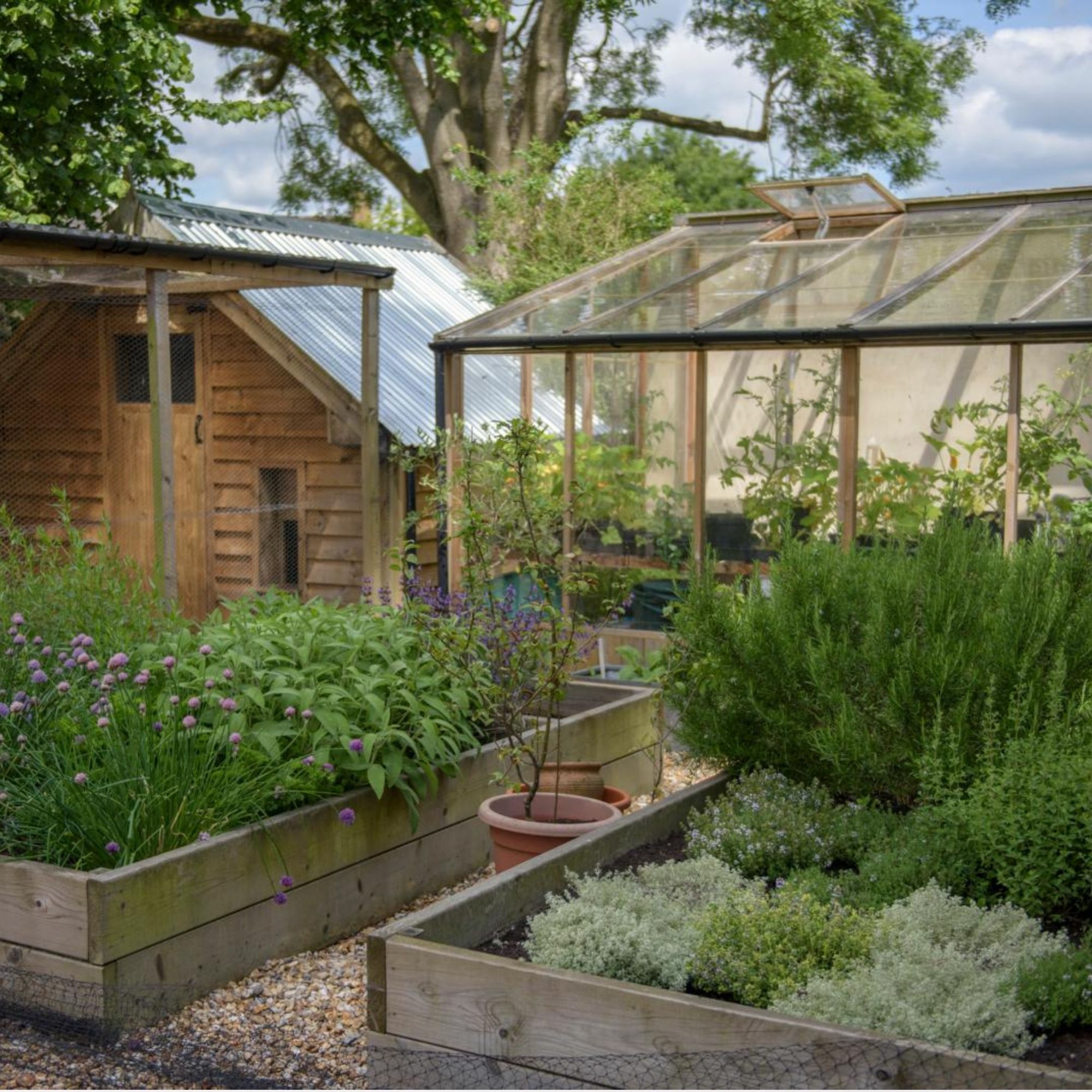
Looking for an autumn leaves hack? Leaf mould is widely considered to be one of the best mulches for vegetable gardens.
'Leaf mould also works well to enrich soil while mulching, and making your own leaf mould is really easy,' says Mark Dwelly, head gardener at Audley Stanbridge Earls.
'Just prepare in advance by bagging up leaves from your garden in black sacks with a little bit of water and store over winter. Organic mulches tend to be best overall for soil health.'
It's worth leaving a pile of autumn leaves in your garden for wildlife to enjoy, too.
3. Bark and wood chips
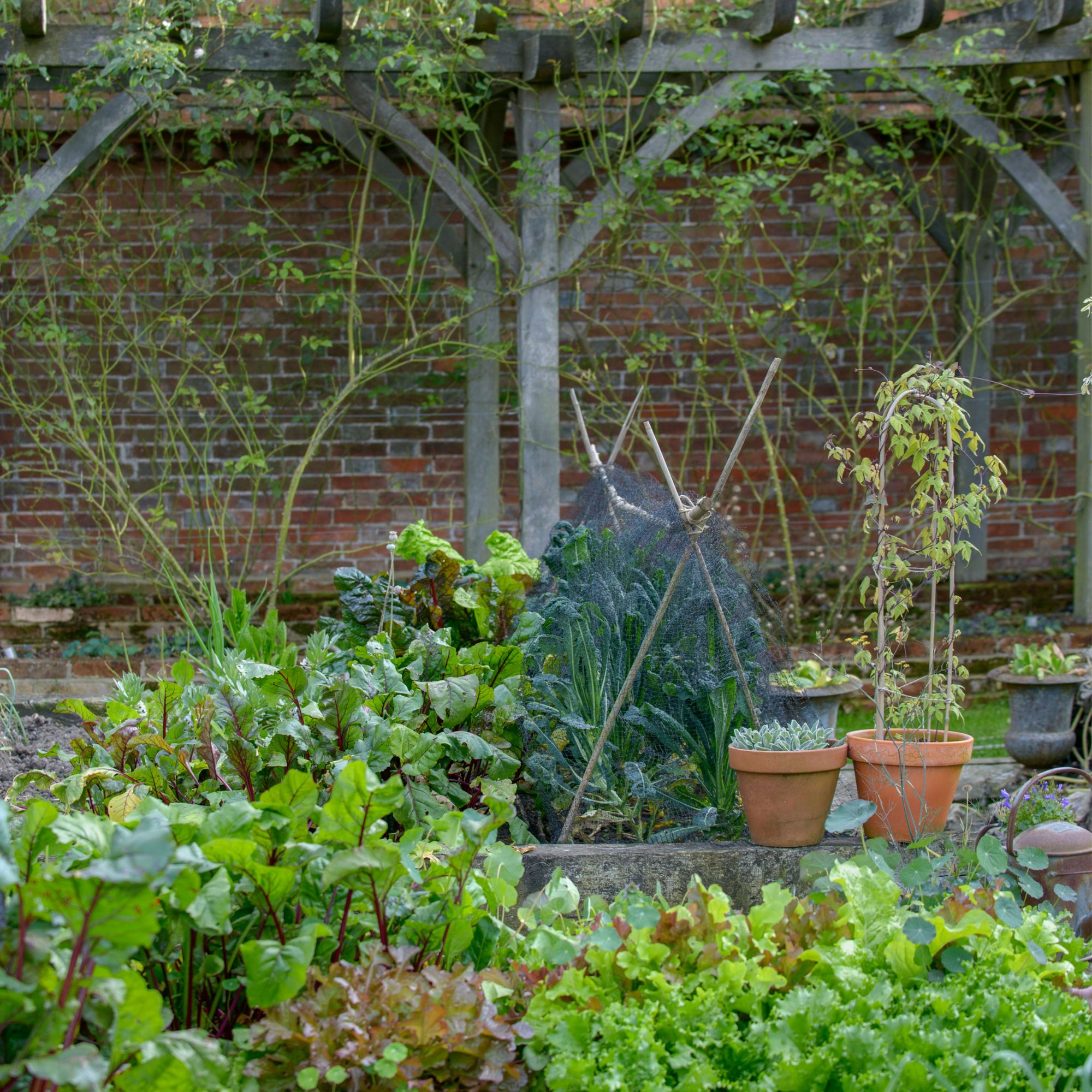
If you're already learning how to use bark to stop weeds taking over your garden borders, you're in luck; wood chips are widely considered the best mulch for vegetable gardens among experts.
'Woodchips decompose quite quickly and enrich the soil,' says Morris, who notes that 'using wood chips is ideal around trees'.
They're useful in other areas of the garden, too. 'Bark chips or gravel for paths and between beds will keep weeds down and provide a tidier appearance,' adds Mark.
If you don't fancy buying wood chips from your local garden centre, the experts at the Royal Horticultural Society (RHS) say that you can make your own easily from larger trunks or branches, too.
'Instead of burning [wood], chipping or shredding it can turn this waste into a valuable mulching material,' they say.
Still, Morris notes that 'bark doesn’t decompose as fast as wood chip and therefore won’t need replenishing so often'.
4. Straw
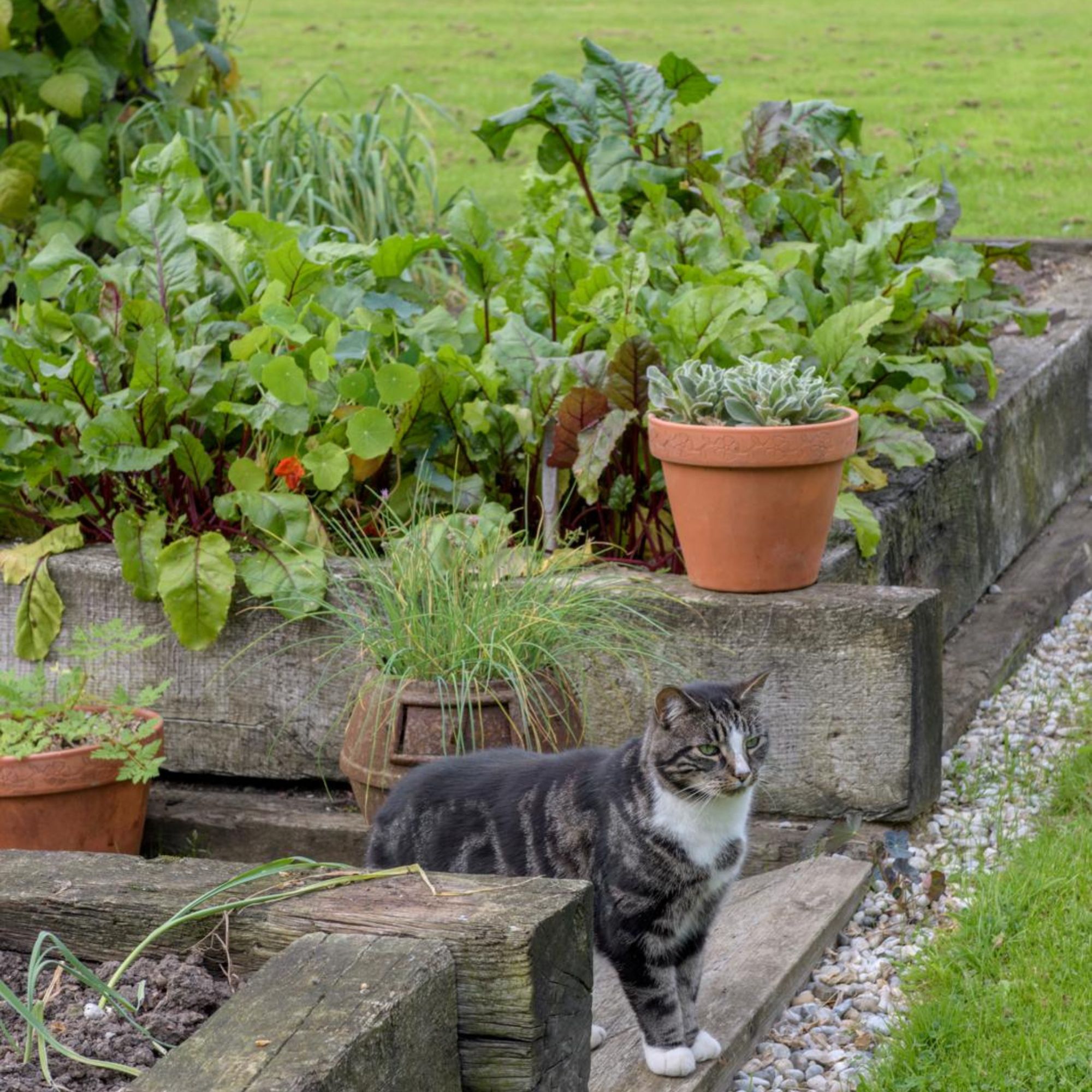
Did you know that you can use straw as a mulch – either in your vegetable garden or over the vegetables you grow in pots, too?
'Vegetable gardens can benefit from a mulch of straw because it helps to suppress weeds and like other mulches, it helps to retain moisture,' advises Morris.
'As it breaks down, it will also help replenish the soil with organic matter.'
Strulch, available at Amazon, is a highly-rated option.
5. Grass clippings
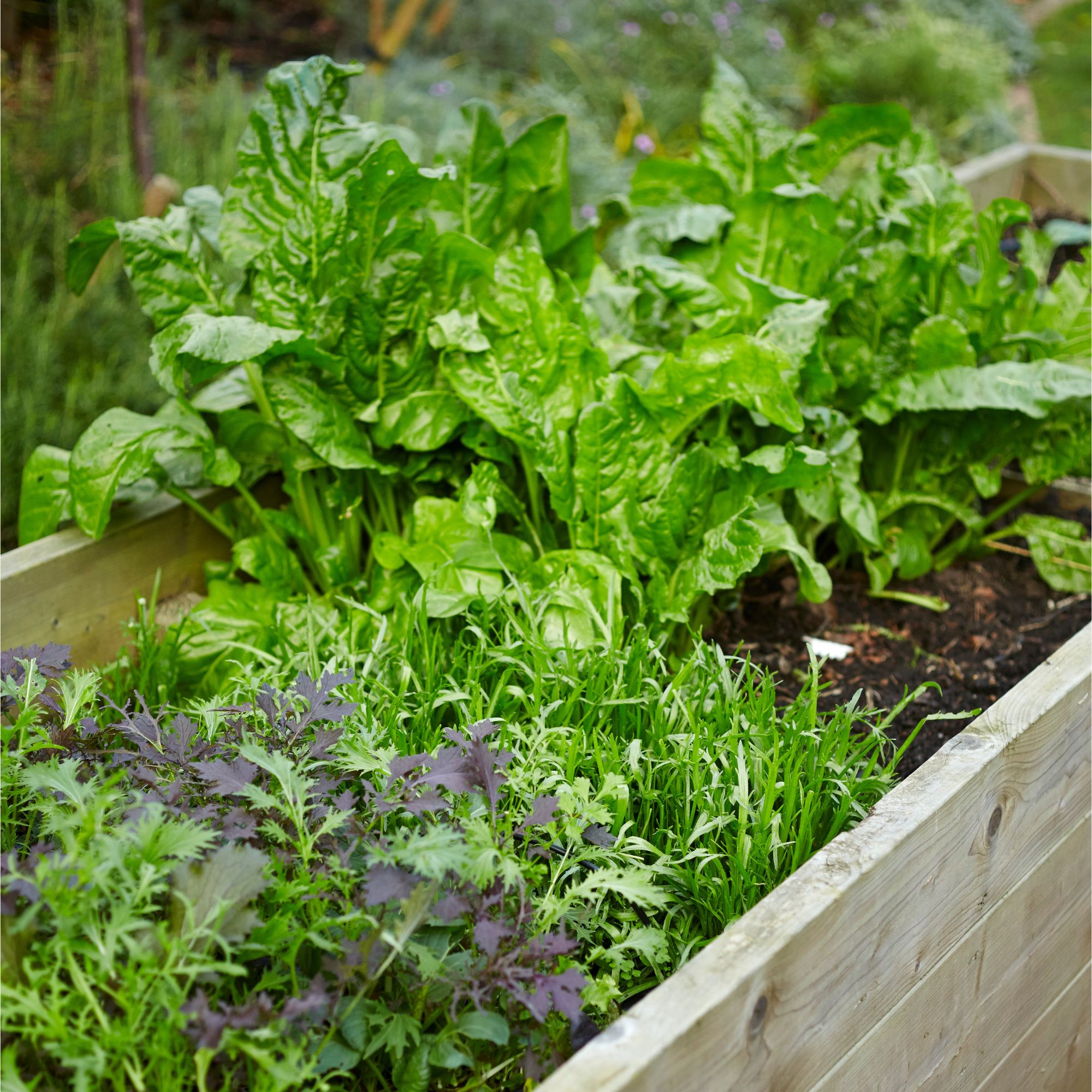
There's a reason you shouldn't chuck your grass clippings away (although, remember, you should let your grass grow long this winter if you want a healthy, happy lawn).
'Grass clippings are a good choice for vegetable beds if used sparingly and as they decompose, nitrogen will be released into the soil, helping vegetables to grow,' says Morris.
FAQs
What is the best mulch for tomatoes and cucumbers?
If you're keen to track down the best mulch for tomatoes and cucumbers, it's always a good idea to use something like straw, as it keeps them lovely and warm (always a must for Mediterranean goodies) and prevents moisture loss, too.
Just be sure to steer clear of hay, as it's packed full of pesky seeds!
Now that you know the best mulch for vegetable gardens, you can go forth and ensure your crops are the best they can possible be thanks to all of that conditioning, weed suppressing, and moisture enhancing material.







